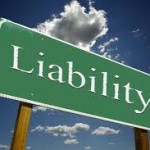By Anthony Rice
 In Kristofek v. Village of Orland Hills, the court reversed a judgment dismissing an officer’s Free Speech Claim. The lower court held that the officer’s Free Speech Claim failed because it was based on a self-interest motive—protection from civil and criminal liability—and not on a matter of “public concern.” However, the appeals court reserved, holding that the officer’s motive, by itself, does not conclusively determine whether a public employee’s speech involves a matter of public concern and is thus protected.
In Kristofek v. Village of Orland Hills, the court reversed a judgment dismissing an officer’s Free Speech Claim. The lower court held that the officer’s Free Speech Claim failed because it was based on a self-interest motive—protection from civil and criminal liability—and not on a matter of “public concern.” However, the appeals court reserved, holding that the officer’s motive, by itself, does not conclusively determine whether a public employee’s speech involves a matter of public concern and is thus protected.
The officer, and plaintiff, in Kristofek was David Kristofek, a part-time officer for the Village of Orland Hills Police Department. In November 2010, Kristofek arrested a driver for traffic violations, but the driver turned out to be the son of a former mayor of a nearby town. Kristofek, over his personal objection, was ordered to let the driver go because of the driver’s political connections. After the attempted arrest, Kristofek was informed, via a training seminar, that he had potentially committed a crime, because “in a case with similar facts, an Illinois appellate court ruled that a police officer is a public employee under the ‘official misconduct’ statute and can be prosecuted for a violation.” Pursuant to an attorney’s advice, Kristofek reported the incident to the FBI as “possible political corruption in the Orland Hills Police Department and/or Village of Orland Hills.” The City then fired Kristofek, prompting him to file a First Amendment suit.
The City defended the suit by asserting that the speech did not involve a matter of public concern and was therefore not protected. The City supported its defense by arguing the speech was motivated entirely by Kristofek’s self-interested desire to protect himself from civil and criminal liability, and that courts have found “speech of public importance is only transformed into a matter of private concern when it is motivated solely by the speaker’s personal interests.” However, the court relied on a different analysis to determine whether the speech was a matter of public concern:
[i]n sum, if the objective of the speech—as determined by content, form, and context—is simply to further a purely personalized grievance, then the speech does not involve a matter of public concern. But if an objective of the speech was also to bring about change with public ramifications extending beyond the personal, then the speech does involve a matter of public concern.



